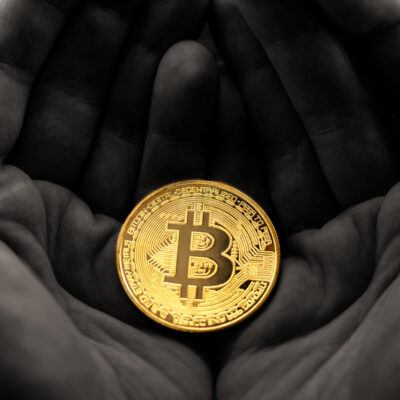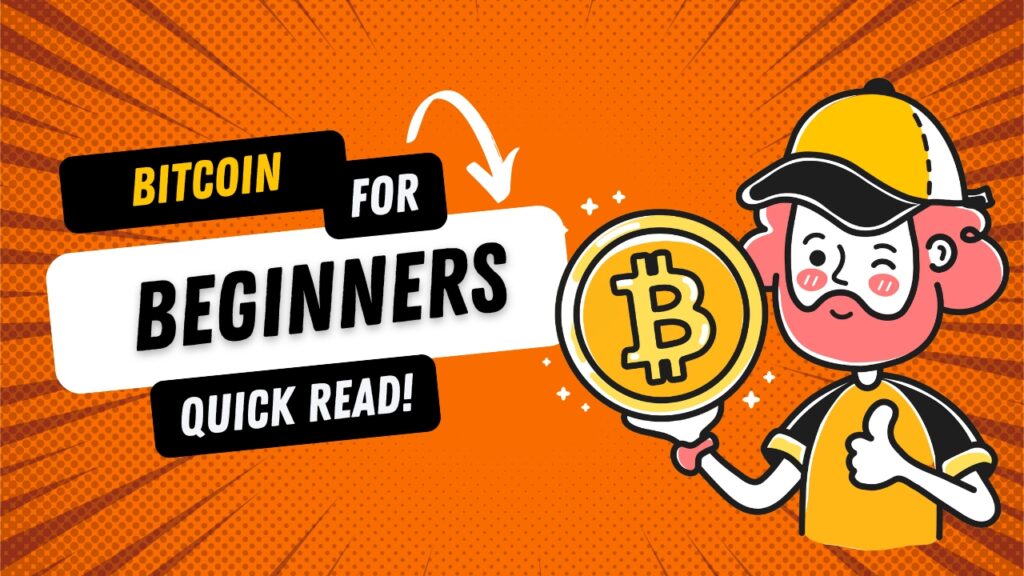
More than a decade after the invention of bitcoin, nobody knows who Satoshi Nakamoto is. Where he came from, what were his motivations, and what he’s doing right now still remain a mystery, and that’s a good thing. So while the mainstream media is still asking, “Who is Satoshi Nakamoto?”, bitcoiners have mostly moved on to more important questions.
In fact, one of the best things about bitcoin is that we don’t know who Satoshi is. It not only a pretty awesome origin story, but it’s an actual advantage to Bitcoin as an asset and network protocol.
Who Is Satoshi Nakamoto, The Person

Though Satoshi Nakamoto announced the release of the Bitcoin whitepaper to the Cryptography Mailing List, it wasn’t Satoshi’s first appearance. Prior to releasing the whitepaper, he had privately contacted both Adam Back and Wei Dai to ask for feedback.
Satoshi was very private, to the point of appearing paranoid. As a result, not a whole lot is known about his personal life. From his discussions with others in public and through email, he seemed to be very focused and direct. It was clear that his #1 goal was to have bitcoin succeed, and he took steps to ensure its success, no matter what.
Actually, during the early days of bitcoin, merging code into bitcoin was Satoshi’s job alone, and it was only later that he handed off the project to the community.
Satoshi Lives on Through His Writing
A great book to read if you are interested in learning more about Satoshi himself is The Book of Satoshi, which is a collection of all the things he’s written via email or on the Bitcoin forums, with explanations and context. Personally, I find it a little tedious to go through the forum myself, so it’s nice to have the consolidated format.
What’s particularly unique about Bitcoin and Satoshi is that all this stuff is archived online, so I can look up the original posts and the forum responses. It’s kind of crazy to think that there were real, average people interacting with Satoshi just a few years ago, and all of these interactions are archived and available to browse online. You can see Bitcoin emerging from white paper to global money step by step!
There’s also a great article titled The Last Days of Satoshi, which is more about the events surrounding Satoshi’s disappearance and not so much about the man himself, but you still get some insight into his personality through his actions and words.
10 Potential Satoshi Candidates

There is lots of speculation about who Satoshi Nakamoto is, and to this day, nobody legitimate has come forward to claim the title. There’s been lots of speculation, and even a few hoaxes, but there has been no conclusive evidence to prove that anyone is either.
That being said, here are some potential candidates for Satoshi, why they might be the guy, and why they probably are not the guy. Pretty much every one of them has been debunked to some degree, so it’s very likely that none of these people are Satoshi.
Related Content
1. Len Sassman
The theory that Satoshi was Len Sassman centers around his involvement with others in the cypherpunk community cryptography industry. Sassman was also proficient in a wide variety of relevant applications that would be necessary to invent bitcoin, but that isn’t so unique among many of the names in this list. What I did think was unique was the idea of Satoshi being an academic because of his schedule of working late nights and being more active over Summer and Winter breaks
On the other hand, Sassman was also a vocal critic of Bitcoin, which would have to be an intentional attempt at misdirection if we are to believe that he was Satoshi.
2. Adam Back
Around 2020, a video was published claiming to have evidence that Adam Back was Satoshi, and the news made the rounds, but in 2022, looking back much of the evidence seems quite circumstantial, namely that they had similar interests and a similar writing style. The video goes on to speculate some stuff about Blockstream, Adam Back’s company, but it’s all conjecture and not a very compelling case in my opinion.
Plus, when you hear interviews with Back, such as this one with Bitcoin Magazine on the origin of Bitcoin, it’s clear that he’s talking about another person, not an alter ego.
3. Dorian Nakamoto

Though it’s now widely joked about and nobody actually believes that Dorian Nakamoto is Satoshi, when the news broke that Satoshi had been unmasked, there were some elements that seemed believable. The name, for one caught many people’s attention. Had Satoshi been hiding in plain sight?
Then, there was a misquote from him, with reporters claiming he said, “He’s no longer involved”, when he actually meant to say that he was never involved. Reporters claimed his silence on the topic was proof that he was involved, which, of course, was not true. He just didn’t want to talk to reporters.
Since then, Dorian Nakamoto has become a de facto Satoshi mascot, often appearing on humorous depictions of Satoshi, or as a Satoshi stunt double. He’s even been spotted at several Bitcoin conferences taking pictures with fans.
4. Sergey Nazarov
I’m not sure if I should even include Sergey Nazarov in this list of potential Satoshi candidates because the evidence of him being Satoshi is so thin, but Satoshi hid his identity well, so there aren’t that many serious candidates. I guess I might as well just let you know the scoop while you’re here.
The evidence that Nazarov is Satoshi hinges on the purchase of the domain name smartcontracts.com a few days before the whitepaper was released. That’s it. That’s the evidence.
It was also discovered at some point that Satoshi used a Russian proxy, but I hardly think that counts as “evidence” of anything. Like I said, the evidence is thin.
5. Nick Szabo
If Nick Szabo was actually Satoshi, it would be too obvious. Szabo famously created Bit Gold, a precursor to Bitcoin that never launched, but had some similarities. He has clearly been interested in creating non-government, digital money for a while.
Like many of the names on this list, the evidence pointing to Szabo as Satoshi relates to what is not known instead of what is known. For example, there are no known emails between Satoshi and Szabo. Also, Szabo is not cited in the white paper, despite the specs for Bit Gold being written three years earlier.
As usual, there are internet sleuths who point to these things as Satoshi failing to properly hide his tracks, rather than just a coincidence that is easily explained.
6. Gavin Andresen
As with many of the names featured here, I think it would be an odd decision for Satoshi to attempt such an obvious fake-out by emailing himself and pretending to be two individuals. With Andresen, it would be next level deception to then disappear, hand the keys to his alter ego, then get your access revoked by playing dumb and participating in a Satoshi hoax. Considering how Satoshi was so concerned with privacy and anonymity, it would be an odd choice to throw yourself into this wacky set of circumstances.
7. Hal Finney
Maybe the second or third most cited person who could possibly be Satoshi is Hal Finney. He was well known as being an incredible cryptographer and coder, and an all around positive, great guy. He was well loved in the cypherpunk community, and he’s the type of person we would want Satoshi to be.
In my opinion, this is why Finney’s name gets brought up so much in the search for Satoshi. Despite the fact that Finney actively denied being Satoshi, pointing out differences in the coding styles and initial email interactions, people want Hal to be Satoshi because it makes a great story.
The story goes like this: idealist cypherpunk spends decades honing his skills to release the world’s most important invention of the century, finally freeing the people from government issued money, then becomes gravely ill and dies before he sees the impact he had on the world. Until his dying day, he was a positive force for friends, family, and programmers around the world, and will be remembered for his contributions.
Some people believe that Satoshi was part of a collective that included Hal Finney, or that he knew more than he was revealing, but there’s no real evidence of that.
8. James A. Donald
Another relatively loose connection to Satoshi comes via James A. Donald, a Canadian cryptographer who was a member of the Cryptography Mailing List at the time the whitepaper was released, and the first person to respond to Satoshi Nakamoto with critiques about Bitcoin.
His initial response is basically the main thing people use to connect him to Satoshi. The theory hinges on the fact that the timestamps on the email server would make it impossible for someone to receive, read, and write a response in just a few seconds, leading some to the conclusion that Donald was emailing himself.
Of course, many people pointed out that there can be time zone shifts and time stamp errors. Personally, I think it’s not very credible that someone with Satoshi-level opsec would make such a simple mistake as being the first to respond to his own email.
Everything else in this theory points to Satoshi’s qualifications as a coder and use of British vs American English, which seems to be a running theme with this list of candidates, so is nothing unique at this point.
9. Paul Le Roux
Lastly, there’s a possibility that Satoshi is not actually a quiet, libertarian, cypherpunk computer programming idealist, but instead, he’s actually a drug dealing, weapon smuggling, international criminal. How could this be possible?
Le Roux had many of the typical attributes you see in Satoshi candidates. Experience in coding and cryptography. Associations with multiple time zones and British English. Similarities in writing styles. All basic stuff, and nothing conclusive.
Another part of this theory is that Le Roux used an alias Salotshi, which is very similar to Satoshi, but of course this was a Congolese name and was associated with a fake passport that was issued in the DRC. Many other connections fall apart just as easily, such as the idea that Satoshi disappeared because he’s actually in prison.
At the end of the day, there’s really nothing connecting this person to Satoshi other than coincidences and a desire to solve a mystery.
10. John Nash
I haven’t had the time to look into this one, but apparently John Nash, the famous mathematician about whom the movie A Beautiful Mind was written, is a potential Satoshi Candidate. There doesn’t seem to be a whole lot of hard evidence around this, but here’s the thread I read about it, and I’ll add more information when I have the time to do the research.
I did pull the following quote from Wikipedia, but it’s unclear exactly what his work was, and as far as people who recognize that inflationary money benefits interest groups and destroys currencies, well, there’s a lot of people who think that.
Nash developed work on the role of money in society. He criticized interest groups that promote quasi-doctrines based on Keynesian economics that permit manipulative short-term inflation and debt tactics that ultimately undermine currencies.
Wikipedia
More Satoshi Possibilities, And the Continued Mystery
In my research for this article, I was surprised to learn that there is actually quite a long list of suspected Satoshis, but the evidence is always very thin, and can be pretty much summed up to three main qualities:
- An interest in digital payments
- Multidisciplinary coding experience
- Language similarities
- +1 unique quirk
The unique quirk varies, but there’s always one sort of coincidental connection. For example, the bitcoin.org name was purchased with Japanese information, but transferred the registration to Finland, where a suspected candidate had traveled to within the same time period of the white paper launch. A few more candidates had Japanese ancestry or were known for creating other bitcoin and cryptocurrency related products.
Was Bitcoin Created By The CIA?
Of course, the most far out (yet still possible) idea is that Satoshi is actually a three-letter agency of the US government. Was Satoshi creating a honey pot for criminals? Perhaps the US government saw the writing on the wall and knew the collapse of the US dollar was imminent and needed a way out. Or a scapegoat. Or was it an effort by the Chinese or Russian government to destroy the US dollar hegemony?
Was he a rogue alien from an advanced galactic federation or a time traveler? There are lots of theories about who Satoshi was, some more believable than others. The fact is, the longer we don’t know who he was, the more that time muddies the waters.
One of Satoshi’s greatest gifts to Bitcoin was his disappearance. He bootstrapped the project, and protected it in its infancy, then left us to figure it out on our own. Bitcoin will succeed or fail thanks to individual bitcoiners.
Video: Who Is Satoshi Nakamoto | Michael Saylor And Lex Fridman
Why It’s A Good Thing Nobody Knows Who Satoshi Is
I once had a conversation with a nocoiner friend of mine and he couldn’t understand why it was so important to me that nobody knew who Satoshi was, so I’ve thought about it and tried to organize the idea into some concrete reasons.
No Ties To A Leadership Personality
These days if the legacy media or social media thinks something you did is unethical, there could be a massive wave of shit coming your way. Actually, it doesn’t even matter what their opinion is, because as long as it can get clicks in the 24-hour news cycle, you could be in big trouble.
Bitcoin is money, and money is neutral. Preachers and hookers both use US dollars equally and nobody thinks twice about it. Using money should not require an ethics test. That is the nature of money.
Imagine A Playboy Billionaire Satoshi
Consider what would happen if bitcoin’s creator had some unlikeable ideas, or even said something innocent that was taken out of context. This could forever affect Bitcoin’s brand as a money. Bitcoin is already battling FUD like environmental impact and fair distribution. Imagine if a billionaire CEO of bitcoin got on Twitter and said something crazy.
Even now, certain media outlets try to brand Bitcoin as “only for criminals” or “preferred by white supremacists”. These attacks generally fail because such a diverse group of people use bitcoin, but this would maybe be a more effective attack if they could then point to a central figure in bitcoin and claim that he espouses certain undesirable characteristics.
In Charge of Our Own Destiny
With a single person in charge of bitcoin, we would be reliant on them for decision-making and the direction of Bitcoin. With altcoins, of which the vast majority are often centralized companies pretending to be cryptocurrencies, they often launch a “roadmap”, as a signal to would-be investors that they have a plan in place of how to develop the coin.
Bitcoin has no roadmap, and that’s a good thing.
Where bitcoin ends up and what it’s developed to do depends on who has the motivation to work on it. There is no leader saying that bitcoin “must do this” or “must do that”. If you want something done in bitcoin, you get it done yourself. You don’t need anybody’s permission.
Imagine Bitcoiners Fighting Against The Word Of Satoshi
As of now, there are actually many competing ideas about how bitcoin should move forward. Each person or team competes to see their vision realized. Sometimes, a single vision emerges. Sometimes, competing versions co-exist and interoperate. Sometimes, nothing happens.
If a single person were in charge of decisions, or held an outsized influence on network participants, Bitcoin would become one man’s vision instead of a decentralized, global effort.
Defense Against Social Influence
Even with a purely ethical leader in charge, and even if they were physically unable to change the protocol themselves, it’s still possible that this leader could be harassed, physically threatened, or gaslit into making statements that could influence the network.
This is a potential threat vector to bitcoin. If a strong enough social attack were sieged on bitcoin, a person, or group of people could potentially convince a majority of users to act against their own interest. We’ve seen this happen before, and it continues to happen with shitcoin apologists pulling affinity scams. The playbook typically run is as follows:
- Build up bitcoin influencer clout
- Become hyper focused on a single issue within bitcoin
- Find an altcoin that solves the problem
- Load up on the altcoin
- Promote the altcoin
- Profit!
Bitcoin Has No Leaders
When you adopt a “leader” in bitcoin, you open yourself to this type of social attack.
Without a leader, bitcoin community members were not fooled when long time bitcoin developer and maintainer Gavin Andresen claimed he had seen definitive proof he knew who Satoshi was (the proof was faked). When the well-known bitcoin developer Mike Hearn claimed that Bitcoin was a failed experiment, almost nobody sold off their coins because they knew Bitcoin could survive without him.
When the prolific Bitcoin evangelist Roger Ver chose the wrong side in the blocksize war and claimed Bitcoin Cash hard fork was the original bitcoin, he simply began to shriek into the void as the community simply began to ignore him.
We’ve seen de facto leaders in bitcoin try to lead people astray in the past, and their efforts have failed. Why? Well, it’s not their bitcoin. Satoshi is gone. Now, we are all Satoshi.
Further Education
- Bitcoin’s Identity Crisis (Medium Blog Article)
Frequently Asked Questions
Is Satoshi A Real Person?
Yes, Satoshi is a real person, though people speculate whether the bitcoin code was developed by a single person or a group of people.
How Many Bitcoin Does Satoshi Own?
Satoshi is often credited with owning more than owning 1.1 million bitcoin, but he has never moved these bitcoin, so it’s unclear if he still has access to the private keys.
Does Satoshi Still Own Bitcoin?
Satoshi has never moved the bitcoin he mined in the early days, so nobody knows if he still has access to the private keys which could be used to access the bitcoin. Nobody knows if Satoshi is even still alive, and many speculate that either the private keys are lost (or burned) or Satoshi is dead and those bitcoin will never move.
Who Is The Largest Bitcoin Holder Other Than Satoshi?
Because bitcoin is pseudonymous, one user can have many wallets, so it’s not immediately clear who in the world is the largest bitcoin holder second to Satoshi. Furthermore, many of the largest bitcoin holders are exchanges or bitcoin funds, so they are not owned by a single person. Most prominent bitcoiners do not disclose how many bitcoin they own. Chamath Palihapitiya claims to have bought 1 million bitcoins at one point, but he’s never signed keys to claim ownership and it’s unclear if he still has that amount. Grayscale owns about 640,000 bitcoin. Microstrategy owns over 140,000 bitcoin as of April 2023.
Who Is The Real Founder Of Bitcoin?
The original found of bitcoin is Satoshi Nakamoto, but there were many early contributors to the bitcoin protocol such as Hal Finney, Gavin Andresen, Jeff Garzik, and Peter Wuille. Bitcoin could not have grown if it was just Satoshi developing alone, and there have been many more vital contributors over the past decade.


















 Is Bitcoin An Investment?
Is Bitcoin An Investment?
Leave a Reply